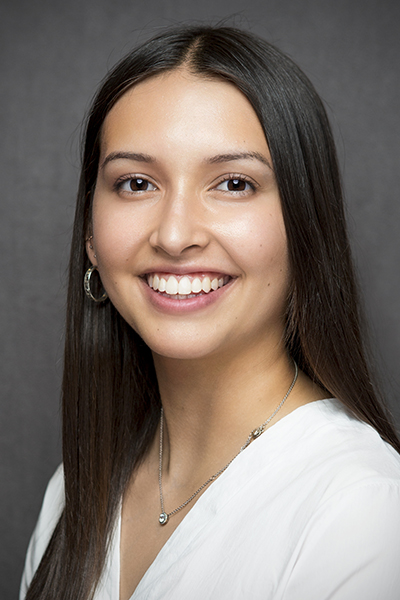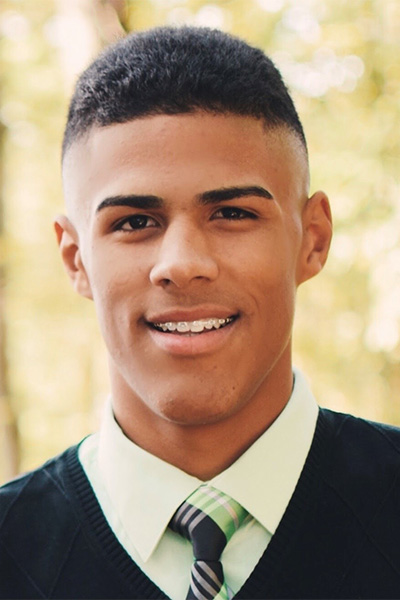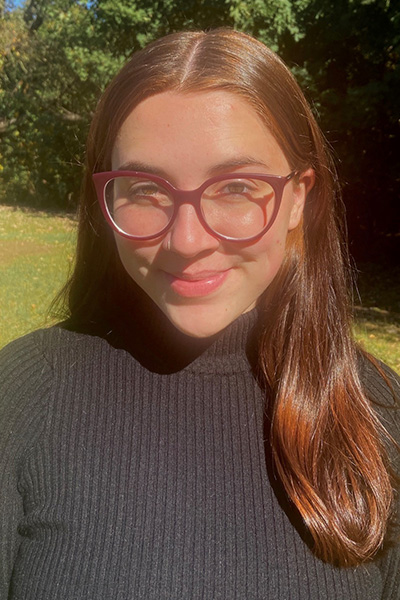- Apply
- Visit
- Request Info
- Give
Peer mentors guide first cohort of Success Scholars
Written by Molly Boucher
Published on October 27, 2021
Three Eastern Connecticut State University students have been hired as peer mentors for the "Beyond the Curriculum: A Learning Community for Success" program. Funded with a $650,000 grant by the National Science Foundation (NSF), the “Success Scholars” program is designed to support lower-income students who are pursuing science-related careers. The peer mentors are working closely with the first cohort of Success Scholars.
Students accepted into the Success Scholars program receive an annual scholarship and benefit from a STEM curriculum rooted in the liberal arts. They also complete a summer orientation program, STEM-focused first-year seminar, and a capstone project in their senior year. Peer mentors serve to guide students through their first year at Eastern.
"Many lower income students are from underrepresented groups, and often are the first in their family to attend a university," said Barbara Murdoch, biology professor and director of the Success Scholars program. "Navigating the university system to the final goal of degree completion can be tough, especially without guidance. A key feature of this program is to provide the NSF Eastern Success Scholars with close faculty and peer mentoring, to support them throughout every aspect of their time at Eastern."
The three peer mentors include senior biology majors Nelson Javier Santos Ferrer, Jazzmyn Lee, and Joselyn Clark, who were selected for their leadership and communication skills, as well as their commitment to supporting fellow students.
“As peer mentors we are able to relate directly to our mentees because we are still in a similar position as them,” said Ferrer. “The only difference is that we know and understand how important it is to utilize our resources to get the best possible results when it comes to our education. We ultimately bridge the gap between students and faculty, making the transition into college a smoother and more enjoyable experience.”
Lee said that being a peer mentor means offering a strong support system to the Success Scholars during this life transition. “Transitioning from high school to college life can be a difficult experience, and to have fellow students that the mentees can turn to in this time is essential. My duties as a peer mentor for the Success Scholars program are to offer a strong support network to the mentees as well as broaden their social network.”
“As a peer mentor we are asked to give earnestly to our mentees,” said Clark. “This includes giving a listening ear to their concerns, answering questions about the university or the biology major, recommending strategies to succeed in classes, helping to look for research opportunities and overall helping them reach a place where they are truly gaining from the university experience.”
“Beyond the Curriculum" is a five-year program that will enroll two cohorts of five Success Scholars each in fall 2021 and fall 2022. As part of the program, students will be monitored for competence, performance and recognition-- three important constructs for the development of STEM identity. The effectiveness of the program's support measures and learning community will be studied throughout the project and publicized.
In addition to Murdoch, the program's lead faculty members include Biology Professor and Department Chair Elizabeth Cowles, Mathematics Professor Kim Ward, Education Professor Laura Rodriguez, who will lead the program's effectiveness monitoring efforts.





